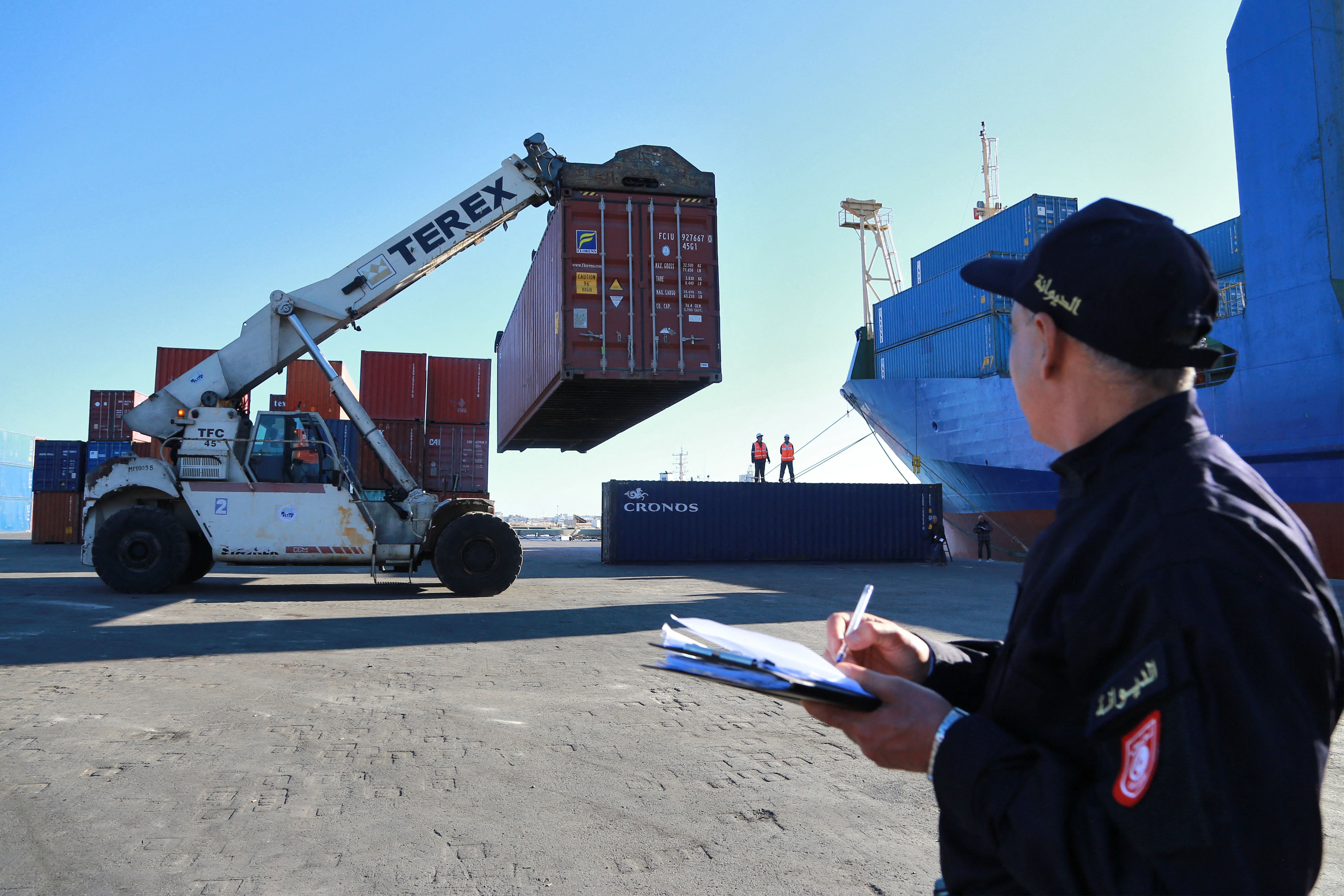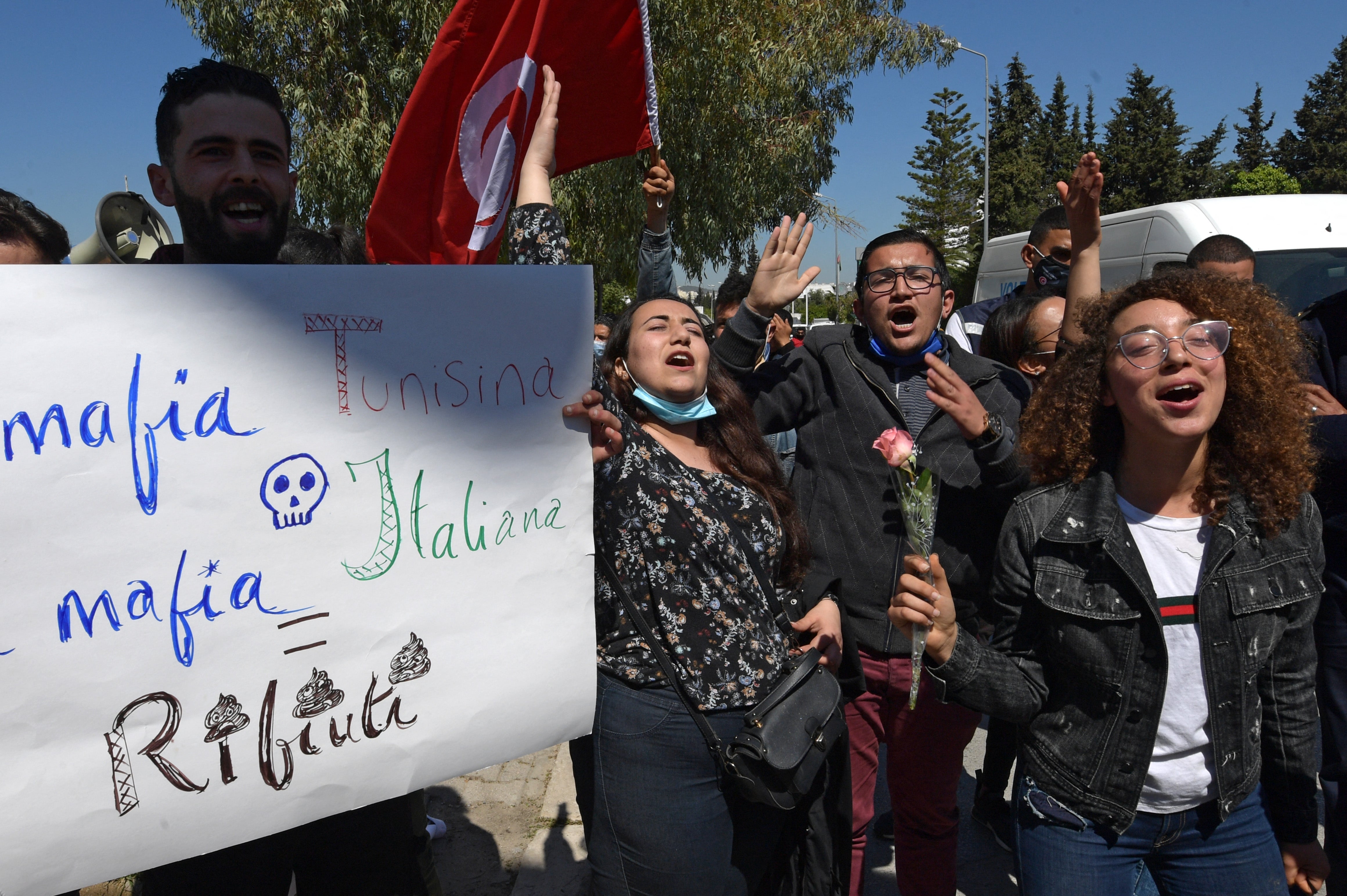Italian mayor decries waste dump plan after Tunisia returns illegal rubbish
More than 200 containers of waste were sent back to Italy from Tunisia on Sunday after a two-year feud

A mayor in southern Italy is gearing up for battle after it was announced that 6,000 tonnes of refuse would be dumped in his municipality in the latest chapter of a two-year waste feud between Italy and Tunisia.
The municipality of Serre in the southern Campania region is set to become a storage ground for 213 containers of illegal waste that were shipped from Italy to Tunisia in July 2020 - then back again on Sunday.
The cargo was sent to Tunisia two years ago under the guise of recyclable waste, a common transaction between wealthy countries who want cheap recycling options and developing countries looking for alternative sources of income.
To the surprise of Tunisian customs officers, the cargo shipped across the Mediterranean by the Campania-based waste treatment company Sviluppo Risorse Ambientali (S.R.A) was not carrying plastic scraps but decaying household items and medical waste, barred from import under Tunisian law.
The illegal refuse was impounded in the port city of Sousse, where it sat for over a year, to the dismay of local environmentalists. During this time 70 containers caught fire and 26 Tunisians were investigated for corruption, including customs officers and the then environment minister Mustapha Aroui.
Mr Aroui was later sacked and arrested for his involvement in the attempted import.
Following months of talks the two countries reached an agreement on Friday to ship the waste back to Italy, to the port city of Salerno.
But a final solution for the toxic junk has yet to be found. On Tuesday it was trucked from Salerno to Persano, a rural village next to a World Wildlife Fund-protected nature sanctuary, where it will be stored for the next six months.

“We don’t want the waste, and we’ll oppose it by any means,” the mayor of Serre, Franco Mennella, told La Repubblica.
Mr Mennella over the weekend called on citizens to gather at the site of the waste deposit on Tuesday to protest the decision by Campania’s local authorities to use their municipality as a dumping ground.
“In addition to pursuing all legal and administrative avenues, we will carry out every form of peaceful protest on the ground to prevent the arrival of containers loaded with waste,” Mr Mennella wrote on his Facebook page.
“I appeal to citizens … to participate in this important and vital battle for the protection and safeguarding of the environment and of public health,” the mayor added.
This is not the first time Italy has come under fire for dumping waste in neighbouring countries. In early 2020, local media reported that police forces in Bulgaria had uncovered some 9,000 tons of metal, plastic, and paper in the northern city of Pleven, ostensibly there to be recycled, but with no recycling facility in sight.
In Asia, several countries have also been pushing back against the import of refuse from wealthier nations that did not arrive as described.
Sri Lanka on Monday returned to Britain the last of several hundred containers filled with thousands of tonnes of illegally imported waste, according to AFP.
The refuse was sent to the island nation between 2017 and 2019 and was listed as “used mattresses, carpets and rugs”.
In reality it also contained biowaste from hospitals including body parts from mortuaries, according to customs officials.
Join our commenting forum
Join thought-provoking conversations, follow other Independent readers and see their replies
Comments


Bookmark popover
Removed from bookmarks